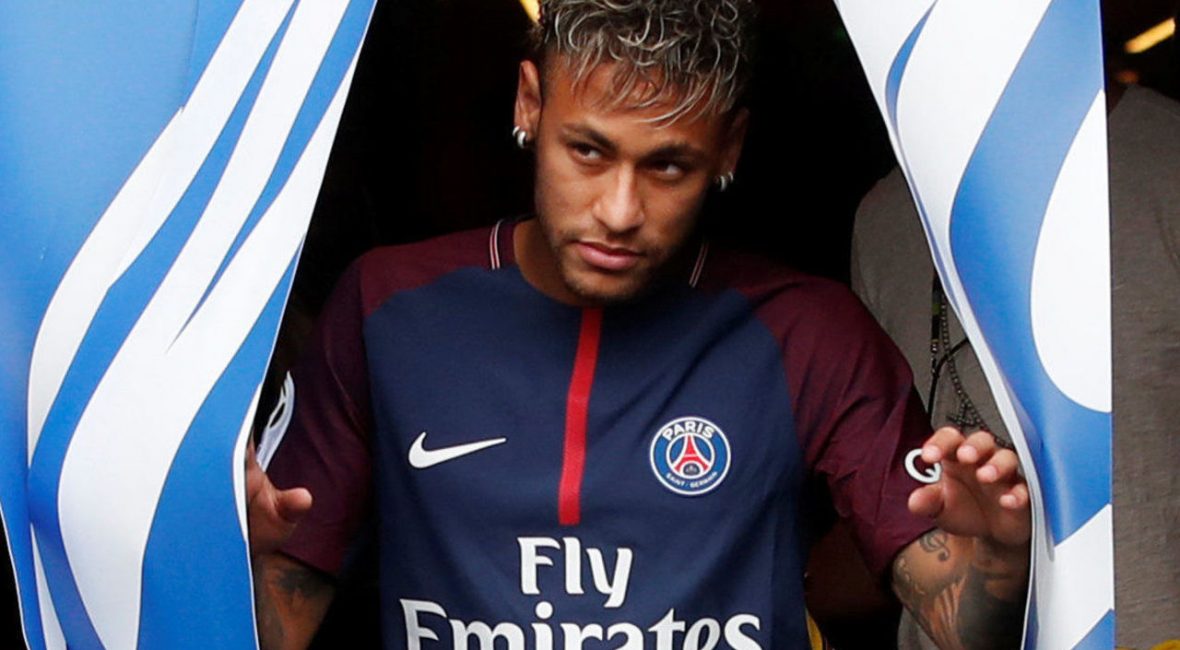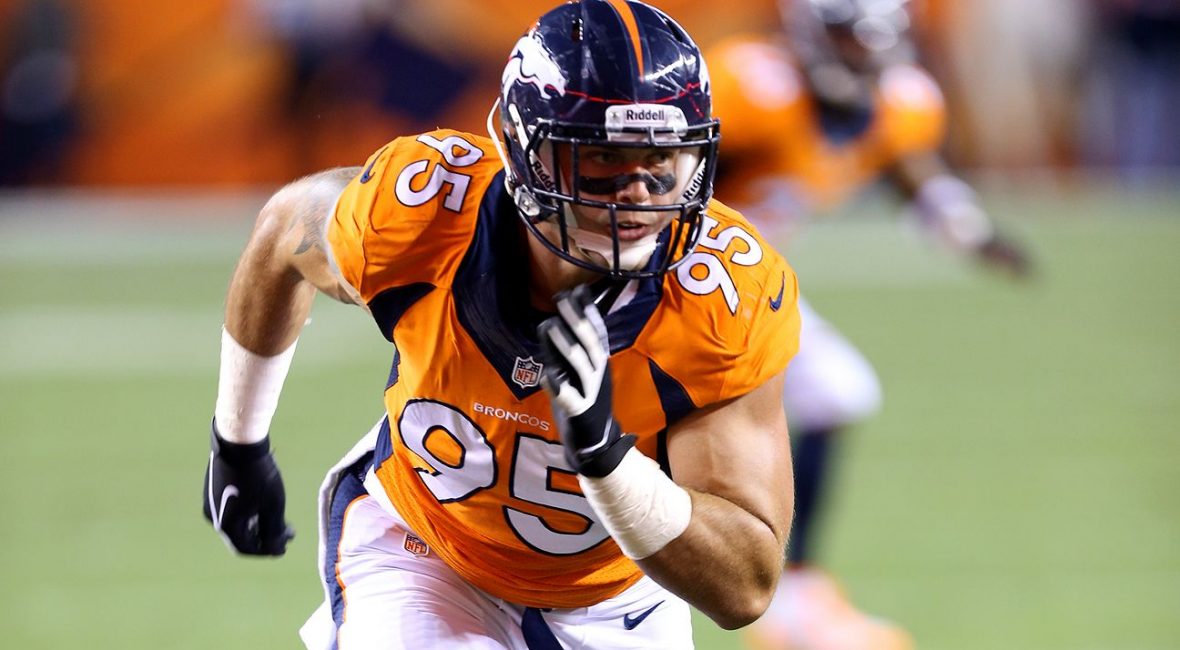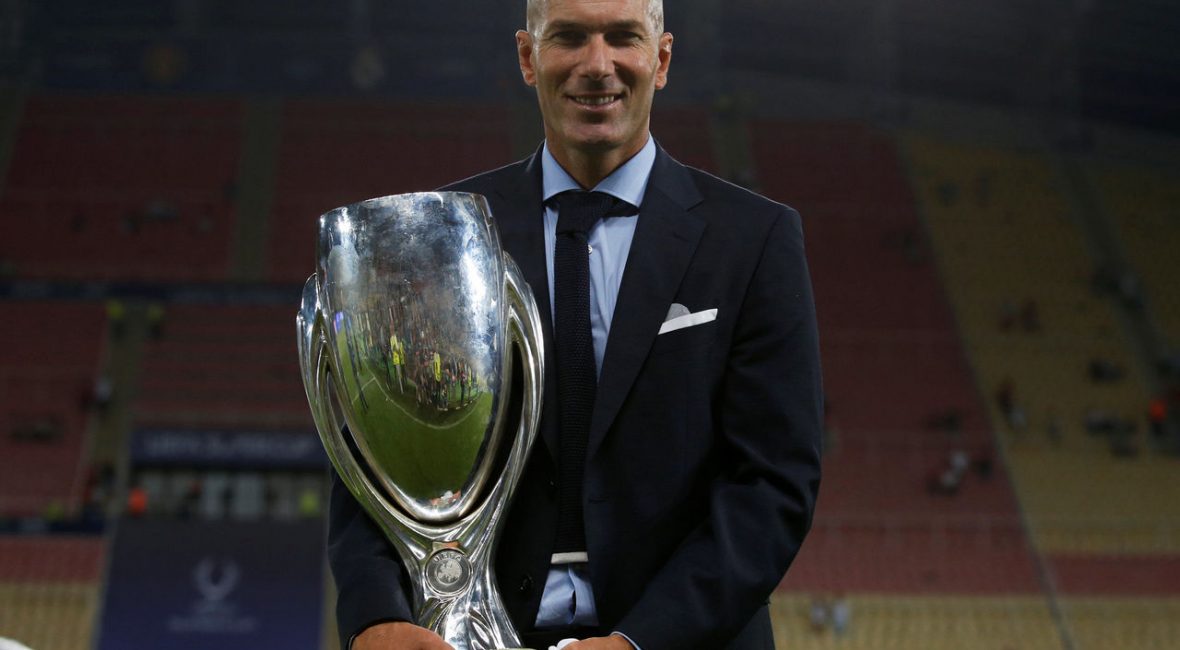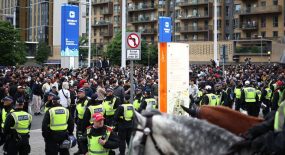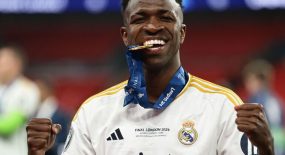PITTSFORD, N.Y. — Hall of Fame quarterback Jim Kelly urged Buffalo Bills fans to keep their faith in the team after Friday’s unexpected trades that sent wide receiver Sammy Watkins to the Los Angeles Rams and cornerback Ronald Darby to the Philadelphia Eagles.
“I’m a former player,” he said during a visit to Sunday’s training camp practice at St. John Fisher College. “You want to win. You want to win now. I get it. I understand that. It’s not always that way with all fans. But the ones who really do get it, understand it, that know the game of football — [they know] that sometimes these things take a little longer. Never would anyone of us expect 17 years not being able to see a January football game.
“Just got to keep your hope, stay on the wagon, hopefully it’s sooner rather than later.”
Kelly lauded Bills owners Terry and Kim Pegula for allowing general manager Brandon Beane and coach Sean McDermott to reshape their roster with the trades, which included the Bills acquiring the Rams’ second-round pick and the Eagles’ third-round pick in 2018.
In January, Kelly said Bills quarterback Tyrod Taylor was not on the level of a franchise quarterback. The trade of Watkins now strips Taylor of his top target.
More people play on ESPN than anywhere else. Join or create a league in the No. 1 Fantasy Football game! Sign up for free!
“It would be like me losing Andre Reed, as far as me, that was my No. 1 receiver and [Watkins] was his No. 1 receiver,” Kelly said Sunday. “It’s not easy but you got to live with it, understand why they did and you have to go with it. That’s your job. You have to lead the team down the field no matter who’s in the huddle.
“Hopefully Matthews comes in and does what we all hope he will do and hopefully what they gave up will be enough to build something with what we got the next 3-5 years.”











